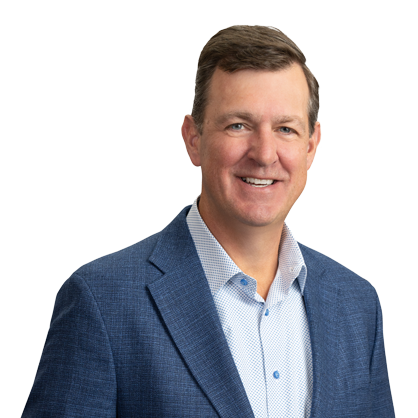Insights
Thought Leadership
NJDEP Proposes New Rules Implementing New Jersey's Environmental Justice Law
On June 6, the New Jersey Department of Environmental Protection (NJDEP) published notice that it is proposing new rules to implement provisions of the New Jersey Environmental Justice Law, N.J.S.A. 13:1d-157 et seq. (the EJL) through certain permit and public comment requirements intended to minimize environmental impacts on certain communities in the state.
Proposed Rulemaking Overview
The proposed rulemaking seeks to implement the EJL through, among other things, establishing permit requirements for certain facilities located, or to be located, within so-called overburdened communities[1] and public engagement requirements for permit applicants with members of host overburdened communities.
Under the proposed rules, "Facilities" subject to the requirements include the following:
- Major sources of air pollution
- Resource recovery facilities or incinerators
- Sludge processing facilities, combustors or incinerators
- Sewage treatment plants with a permitted flow of more than 50 million gallons per day
- Transfer stations, solid waste facilities or recycling facilities intending to receive at least 100 tons of recyclable material per day
- Scrap metal facilities
- Landfills
- Medical waste incinerators
The proposed rules will require that applicants for permits for Facilities located or proposed to be located in an overburdened community prepare an environmental justice impact statement (EJIS) that evaluates existing environmental and public health stressors in the community, how the proposed or existing facility will impact those stressors, and any measures that the applicant proposes to address those impacts. "Stressors," as defined by the proposed rules, will include:
- concentrated areas of air pollution;
- mobile sources of air pollution;
- contaminated sites, including soil contamination deed restrictions, groundwater classification exception areas and currently known extent restrictions;
- transfer stations or other solid waste facilities, recycling facilities and scrapyards;
- point-sources of water pollution, including water pollution from facilities or combined sewer overflows;
- density/proximity stressors such as proximity/density of permitted air sites, National Pollutant Discharge Elimination System sites and emergency planning sites;
- social determinants of health, including unemployment and education levels; and
- conditions that may cause potential public health impacts, such as asthma, cancer, elevated blood lead levels, lack of recreational open space, lack of tree canopy, impervious surfaces, floodings and cardiovascular disease.
Among the analyses that must be included in the EJIS, which requirements will vary depending on whether a Facility is new or existing and whether adverse cumulative stressors are or will be present in the host community, are the following: avoidance of disproportionate impact, compelling public interest, and proposed control measures to avoid, minimize and/or reduce contributions to stressors.
The new rules further propose provisions to implement the permitting procedure and public engagement required under the EJL. Procedurally, after a review of the EJIS for administrative completeness, NJDEP will either request revisions or authorize an applicant to proceed with the public engagement process. During the public engagement process proposed under the rules, an applicant will hold a public hearing in the overburdened community. An applicant will provide public notice of the public hearing, which notice will need to include information about the applicant, the Facility, a summary of the EJIS, how a copy of the EJIS may be obtained and an opportunity for the public to comment at least 60 days before the hearing.
After the preparation of the EJIS and the public hearing and comment period, the NJDEP will issue a written decision. Where the Facility can avoid a disproportionate impact, NJDEP will authorize the applicant to proceed and will impose conditions necessary to ensure that a disproportionate impact is avoided. Where NJDEP determines that the Facility cannot avoid a disproportionate impact, NJDEP will deny the application unless there is a showing that the Facility will serve a compelling public interest in the overburdened community.
A copy of the proposed rulemaking is available here.
Opportunities for Public Feedback
The NJDEP is actively seeking public feedback on the proposed rules. Public hearings have been scheduled on the following dates and times:
- Monday, July 11, from 3:00 p.m. to 5:00 p.m. and 6:00 p.m. to 7:00 p.m. at the NJDEP's Public Hearing Room, 401 East State Street, Trenton, NJ
- Wednesday, July 13, at 6:30 p.m. at the Ray and Joan Kroc Corps Community Multipurpose Room, 1865 Harrison Avenue, Camden, NJ
- Wednesday, July 27, at 6:00 p.m. at the New Jersey Institute of Technology, Campus Center Atrium, First Floor, 150 Bleecker Street, Newark, NJ
- Thursday, July 28, at 6:00 p.m., virtually at the following link, provided by NJDEP:
- Zoom link: https://www.zoomgov.com/meeting/register/vJItde2trzkrEupuztqasfJ72EJAkr6OyJY
- Meeting ID: 160 245 1218
- Further, the NJDEP is soliciting oral testimony and/or written comments for the virtual public hearing; the testimony or comments can be emailed to NJDEP at ejrulehearings@dep.nj.gov on or before 5:00 p.m. on July 27.
Additionally, during the 90-day public comment period, written comments can be provided to NJDEP by September 4, electronically here or in hard copy to Melissa P. Abatemarco, Esq., Attn: DEP Docket Number: 04-22-04, NJ Department of Environmental Protection, Office of Legal Affairs, Mail Code 401-04L; PO Box 402, 401 East State Street, 7th Floor, Trenton, NJ 08625-0402.
Day Pitney will continue to monitor and provide updates as the EJL rules are finalized, published and become effective. Should you have any questions concerning the EJL, proposed rulemaking or real estate matters in general, please contact the authors of this alert or any of the Day Pitney Environmental and Land Use team.
[1] The EJL defines an overburdened community as "any census block group, as determined in accordance with the most recent United States Census, in which: (1) at least 35 percent of the households qualify as low-income households; (2) at least 40 percent of the residents identify as minority or as a member of a State recognized tribal community; or (3) at least 40 percent of the households have limited English proficiency." N.J.S.A. 13:1D-158.




